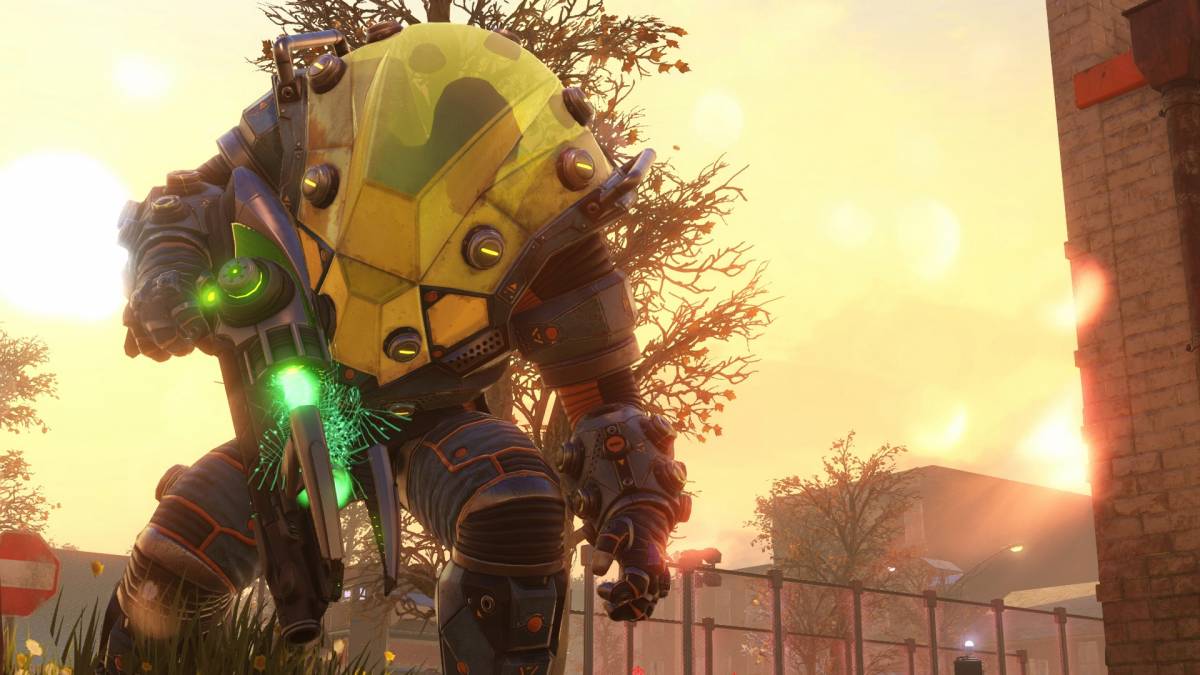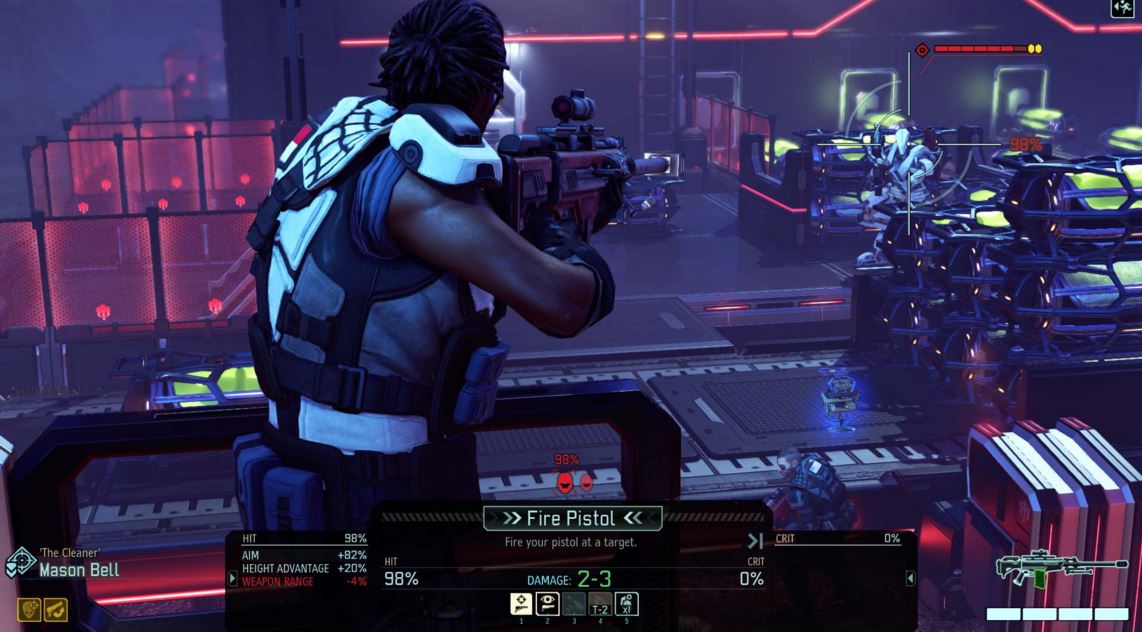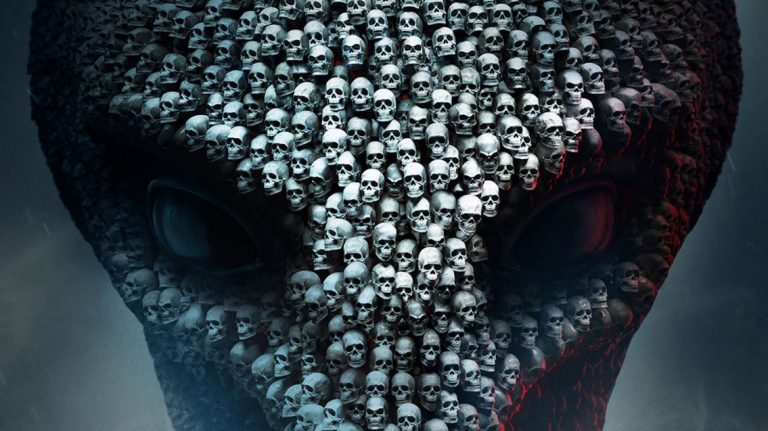It may be functionally redundant to pen this article since the likelihood is that if you were interested in XCOM 2 you would have bought and played it by now. If, however, you occupy that elusive two percentile that would otherwise be interested in playing the sequel to Firaxis’ wildly successful 2012 X-Com reboot if only you had known yet somehow missed their aggressive marketing campaign then stop staring at your feet, my man; this review is for you.
To provide a quick overview of the setting, you take the role of the faceless ‘Commander’; a mute yet unaccountably competent military genius in charge of the clandestine extra-terrestrial defence organisation, XCOM. Or, at least you were. At one point in the previous game, your base of operations is assaulted by the alien threat directly and you have to defend your home turf to continue the fight else face a ‘Game Over’. Turns out failure to do so is the canonical ending of X-Com: Enemy Within; your base is annihilated, the Commander is captured and the leaders of the world capitulate to alien rule.
In the twenty years that follow, the invaders, as opposed to wiping out humanity entirely, have instead installed a totalitarian coalition of aliens and sympathetic humans, know as ADVENT, to rule the earth whilst extolling the virtues and generosities of ‘our alien benefactors’. Through Orwellian use of propaganda and misinformation, the majority of the human race has wilfully accepted alien dominion with the exception of one or two pockets of resistance fighters. One such pocket, led by a familiar face from the first game, breaks into an ADVENT holding facility and rescues you from stasis in the hopes of rallying the rag-tag resistance into a capable enough fighting force to emancipate the Earth from extraterrestrial authority.

Mechanically, this translates to managing your base of operations from a flying fortress repurposed from alien tech, leading guerrilla strikes across the globe in a series of missions of uncompromising turn based, squad shooter combat. You enlist randomly generated rookie soldiers from an impressive array of nationalities and backgrounds and train them up to fight ET. You research materials, perform autopsies and reverse engineer alien tech in order to bridge the substantial gap in military hardware between yourself and your adversary. You fly across the continents to avoid alien detection, answer distress signals, scour the globe for useful leads and resources and try to make contact with resistance cells in the hopes of pooling your meagre forces together. And all of this you are expected to do at once; right from the get-go, with a paltry number of soldiers and staff against an incredibly sophisticated and well-entrenched alien threat.
Playing XCOM 2 for the first time is reminiscent of what one imagines childbirth to be like; you can read all the books and go to all the classes but nothing is going to stop it from wrecking your shit the first time. You may defeat the first couple of missions but the natural mistakes a new player will make, in conjunction with the fact that the game does little to hold your hand in explaining the significance of certain events or decisions, will most likely cause you to lose your first campaign attempt. This is especially the case if you masochistically opt for ‘Ironman Mode’; the officiated ‘true XCOM experience’ where there exists only one save file of your game that autosaves after every significant action. So if you make a mistake in your research or build order, you push your squad too far forward and accidentally reveal yourself to too many aliens at once or one of your squaddies misses a crucial 95% chance to hit shot then put on your bib and prepare to eat shit, my friend. Your mistakes and bad luck are doomed to permanency.
No action undertaken in XCOM 2 is done so without consequence; resistance leads and supply drop alerts often manifest themselves simultaneously meaning you are constantly assessing which are the most crucial for you to chase down. Soldiers wounded during a mission will have to recover over a set time period before they can be used in the field. ‘Shaken’ soldiers suffer stat deficiencies and soldiers that are killed are, predictably enough, gone for good.Your understaffed R&D department can only research one project at a time and your Engineering division can only start a build project or man a facility for every member of staff you have access to, which invariably starts at one. Your role as Commander of the resistance often feels like an impossible one; your resources are too few and far between, your progress is too slow and your soldiers are too inexperienced or wounded to cope with the seemingly endless alien garrisons and strike forces. And this, ultimately, is what it makes one of the most compelling video game experiences I have the pleasure to recommend.
There is a recurring theme in modern gaming where the level progression and mechanics of a particular game are at odds with its narrative or setting. We’ve all been there before; the world has been thrown into chaos or faces an impossible threat of some kind and you are the only one capable of stopping it. Nothing is impressed upon you more than how monumentally screwed the world is without you and how important it is that you succeed. Contrastingly, you ape your way through a tutorial mission and tumble through the next subsequent objectives with relative ease. Of course, the game gets progressively more difficult as you progress but it never feels like your obstacles are as impossible as the NPC’s would have you believe. You occasionally feel like if somebody else in the game was also as competent as you then this scenario would never have occurred, thereby causing you to take the lamentations of the in-game characters less seriously. Minor frustrations or retries aside, you never truly ‘feel’ the odds are as against you as the plot requires.
The game is unable to reconcile the contrasting progressions of its story and its gameplay; the stakes need to be high to assure the player’s attention yet the game cannot be too difficult initially or the player is likely to feel cheated and frustrated to the point of giving up. This is harder for some genres than others to resolve but it feels important for developers to try and achieve this harmony between the two concepts, less the story or ‘feel’ of the game be compromised.

It may sound as though what I’m suggesting is that all games that have this kind of premise should just be subject to a blanket rise in difficulty which I’m not. It wouldn’t work from an accessibility point of view and not all games are trying to make an experience about the end of the world. What I am saying is it should be a priority for a game to create a gameplay experience that corresponds to the story it is trying to tell. XCOM 2 does this with a subtlety and elegance that is hard to find; the player is thrown in at the deep end, constantly assailed by conflicting mission objectives and forever re-evaluating and adapting their campaign priorities. It always feels as though there is never enough time. Crucially, however, this isn’t actually the case. Before accepting a mission request or chasing a new lead you can pause to assess your research progress, your build order, the state of your troops or your available supplies. During combat, before making a move, you can tab between all available soldiers and consider all possible options and tactical advantages before you commit to your optimal play. This is what stops XCOM’s difficulty from feeling cheap or sadistic; you live with the consequences of your decisions but you have all the time in the world to make them.
I could expand on more of the little things about the game that I love. The wealth of customisation options for the soldiers. The fact you can write both their biographies and their epitaphs. The variety of nationalities and voice/language options for your squad that make XCOM truly feel like an international fighting force. The Scottish voice pack. The procedurally generated maps and destructible environments. The plethora of mission objectives; escort missions, hijacking trains, infiltrating alien compounds and capturing enemy VIP’s to name a few. The Scottish voice pack. The fact that the loading screen when returning to base shows your soldiers smiling and nodding at one another if the mission went well and sitting in silence if it went badly.
However, all of this – even the Scottish voice pack – pales in terms of significance to XCOM 2’s true accomplishment; making you legitimately feel like you are fighting to oust an occupying alien threat. Making you feel like your tactical decisions have consequences on a global scale. Making you feel like you are overthrowing a totalitarian government from the shadows.
Making you feel grief for the soldiers you have lost, many of whom you raised and promoted from military obscurity. Making you feel invested in their development and excited and proud of their victories.
And most importantly, what you feel when you have just walked away from a mission with no casualties and no injuries of any kind for the first time. All soldiers stand tall. The month ends and your monthly supply drop appears. The report shows you have made considerable progress fighting the aliens with minimal casualties. Your superior congratulates you just as your research for Gauss weaponry is completed. And somehow you know you’ve cracked it. Next month you make them pay.
Next month you turn the tables.
Some of the coverage you find on Cultured Vultures contains affiliate links, which provide us with small commissions based on purchases made from visiting our site.

